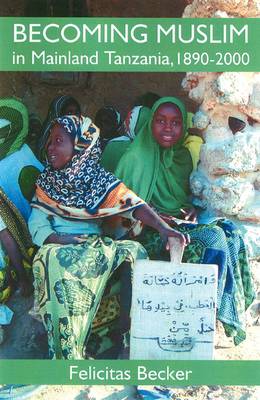
- Retrait gratuit dans votre magasin Club
- 7.000.000 titres dans notre catalogue
- Payer en toute sécurité
- Toujours un magasin près de chez vous
- Retrait gratuit dans votre magasin Club
- 7.000.0000 titres dans notre catalogue
- Payer en toute sécurité
- Toujours un magasin près de chez vous
Description
The widespread conversion to Islam in East Africa during the colonial period is well known, but the reasons have remained obscure. This volume examines Muslim communities in Southeast Tanzania that originated in the early twentieth century and have recently become divided between radical Islamists and defenders of a local orthodoxy. This volume asks why did Tanzanian converts turn to Islam under a Christian colonial regime? How did they learn how to live as Muslims in the isolation of rural villages, and how did they reconcile their Muslim allegiance with the continuation of local religious practices? How did gender relations change as they became Muslim? How did Tanzanian Muslims move from enthusiastic support for independence from colonial rule in the 1950s, to intense mistrust and sometimes violent opposition towards their independent government by the 1990s? Making extensive use of first-hand accounts with a combination of government and mission records, this volume examines the intellectual and social forces behind these transitions.
Spécifications
Parties prenantes
- Auteur(s) :
- Editeur:
Contenu
- Nombre de pages :
- 390
- Langue:
- Anglais
- Collection :
Caractéristiques
- EAN:
- 9780197264270
- Date de parution :
- 15-11-08
- Format:
- Livre relié
- Format numérique:
- Genaaid
- Dimensions :
- 163 mm x 234 mm
- Poids :
- 748 g

Les avis
Nous publions uniquement les avis qui respectent les conditions requises. Consultez nos conditions pour les avis.






